Europe heatwave: High temperatures but respite expected
- Published
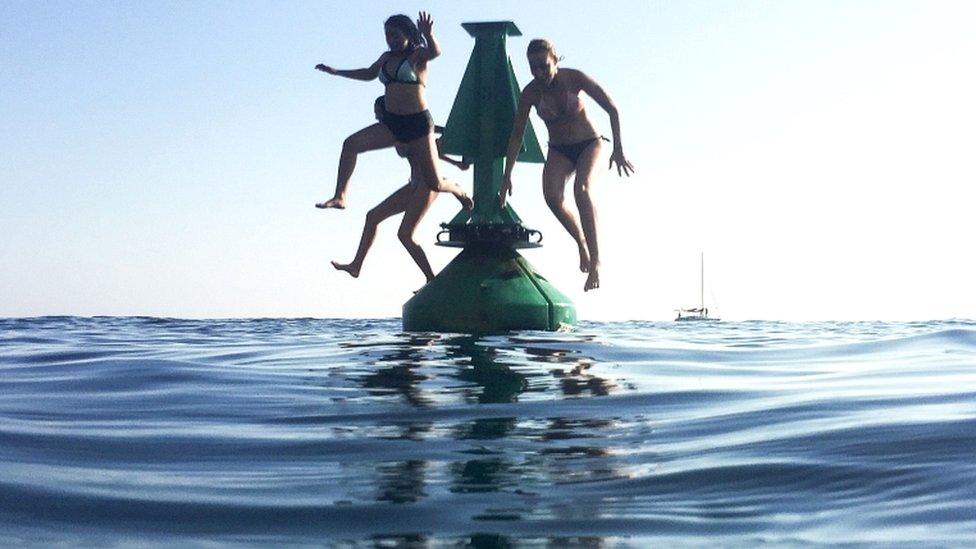
Swimmers jump off into the sea in Nice, south-eastern France, to try to cool down as Europe continues to experience hot temperatures
As Europe faced another day of high temperatures in this summer's heatwave, forecasters have also said a respite is on its way in some areas.
In France, temperatures were expected to peak in the south of the country on Monday and further north on Tuesday.
In Spain, the death toll rose to seven after a German man died of heatstroke on the Camino de Santiago pilgrimage on Sunday, police told AFP news agency.
Sweden's wildfires abated and there was heavy rainfall in the north on Monday.
Record heat in the Arctic Circle had triggered drought and wildfires.
In France, several cities imposed traffic restrictions to try to reduce the ozone pollution which has been aggravated by the heat; in the capital, Paris, the city offered free parking and cheaper daily metro and bus passes to discourage people from driving.
The current forecast is for a cooler end to the week with temperatures in the mid-20s.
The heatwave could be among the "top three" on record for France, the national weather service has said.
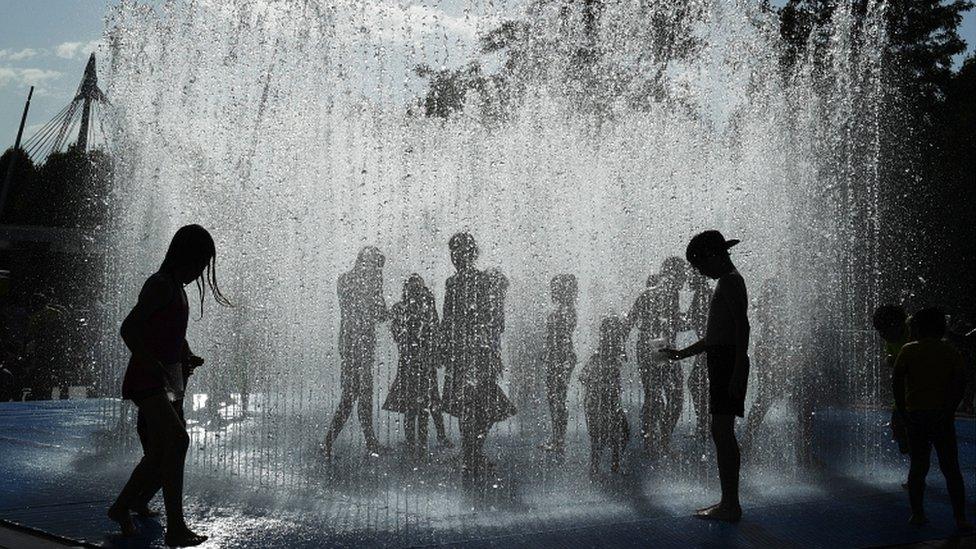
Children play in the fountains by the River Thames in London
The UK saw continued hot weather in the south with temperatures no higher than 32C, but it was cooler and cloudier in northern areas.
On Tuesday, temperatures could peak at 34C in some parts before falling in the following days, the Met Office said.
Warmer than average weather could last until October, it added.
In Spain, temperatures remained high, especially in the south-east where they were forecast to hit 40-42C.
They have also remained high at night: the town of Zorita in the south-west recorded a temperature of 35.1 C at midnight - the highest temperature in the country at that time, said the national weather office.
Firefighters have been gaining control of a wildfire in the south-western province of Huelva, across the border from the Algarve in Portugal where a major blaze was still burning in Monchique.
Portuguese firefighters continued to battle the flames even though the authorities had hoped to control the blaze by now.
But Jorge Botelho, chairman of the Faro-based civil protection commission, said he believed that with improving weather conditions, firefighters would rapidly get to grips with the blaze, adding that "95% of the fire's perimeter" was under control.
The country's weather service said that after reaching a peak at the weekend, temperatures were back below 45C and should continue to lower over the next few days.
Early wine harvest
Germany expects a fresh spike mid-week to around 39C before temperatures ease, with official figures showing the average for April-July running 3.6 degrees higher than the 1961-1990 reference period.
But it's not all bad news as German wine growers are harvesting early thanks to the hot and dry weather.
One of them told Reuters news agency that the grape harvest is about two weeks ahead of schedule this year.
"Basically, we expect other wines [that need longer fermentation] to be as good [as Federweisser, a very young wine]," Mathias Wolf said.
"They will also be harvested earlier. And we can also expect a very high quality from our other wines."

The current European temperature record is 48C (118.4F) set in Athens in July 1977.
Portugal's national record is 47.4C (117.3F), set in 2003. Spain's peak of 47.3C (117.1F) was only set in July last year.
Researchers said that climate change had made Europe's extended heatwave twice as likely as it would otherwise have been.
- Published6 August 2018
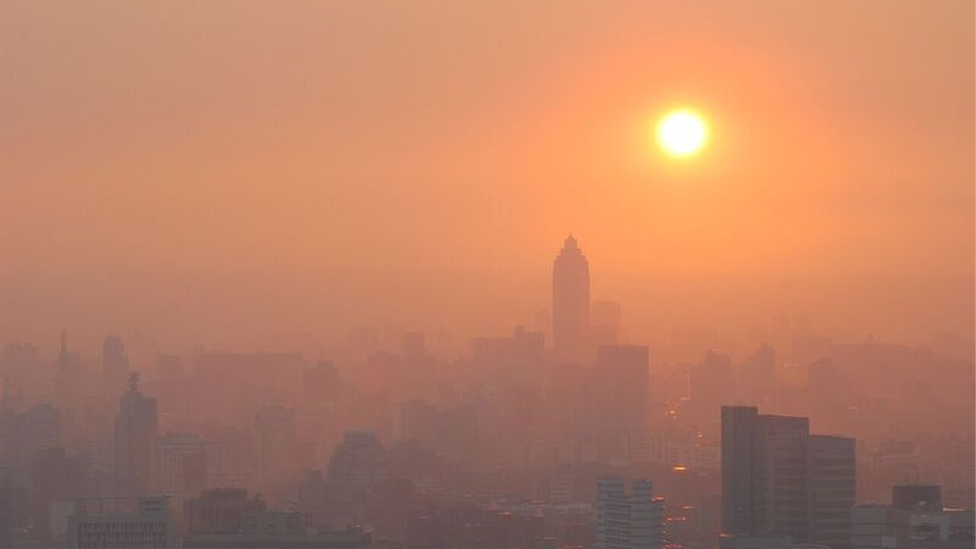
- Published4 August 2018
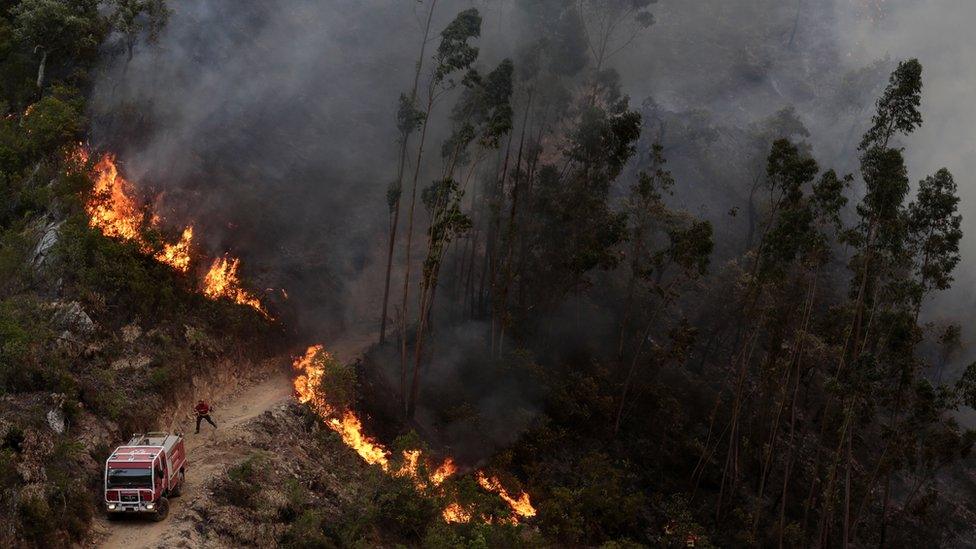
- Published3 August 2018

- Published3 August 2018
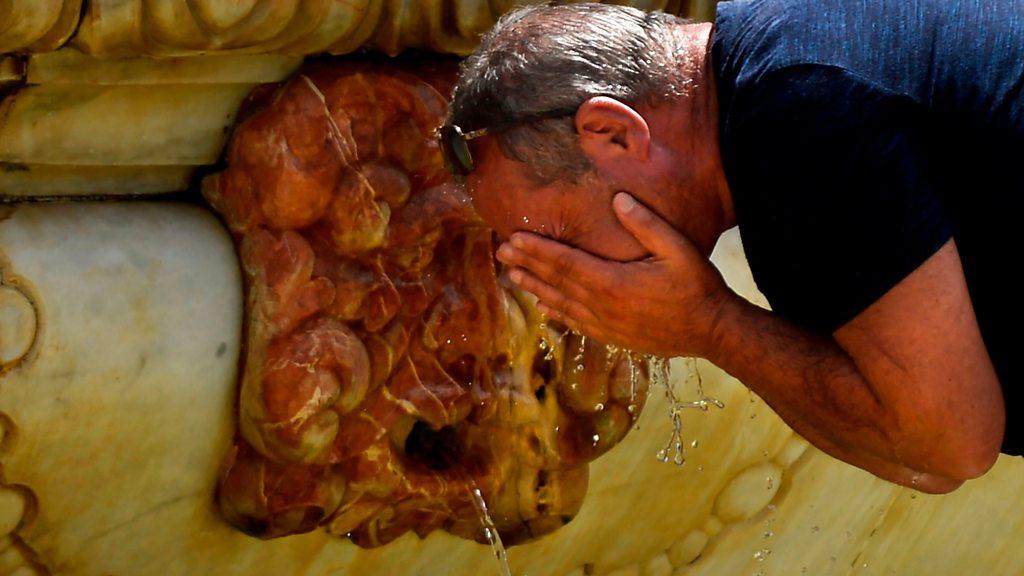
- Published2 August 2018
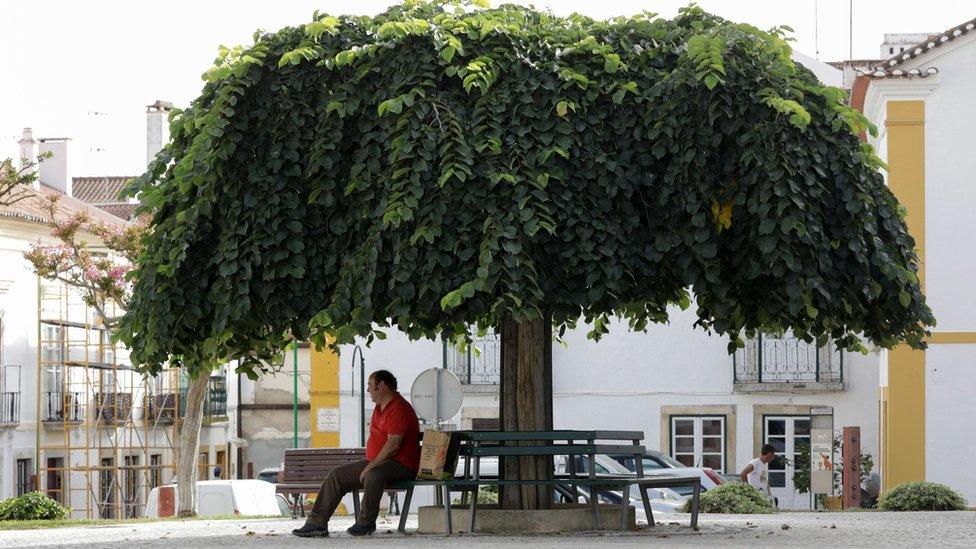
- Published2 August 2018

- Published24 July 2018
